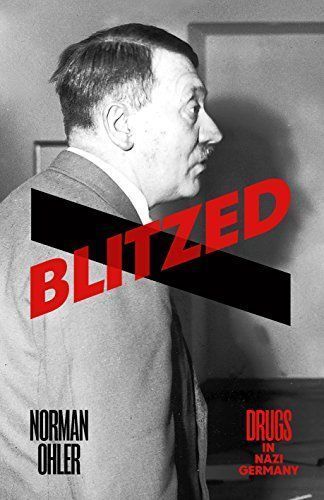
Blitzed Drugs in Nazi Germany
'The most brilliant and fascinating book I have read in my entire life' Dan Snow 'A huge contribution... remarkable' Antony Beevor, BBC RADIO 4 'Extremely interesting ... a serious piece of scholarship, very well researched' Ian Kershaw The sensational German bestseller on the overwhelming role of drug-taking in the Third Reich, from Hitler to housewives. The Nazis presented themselves as warriors against moral degeneracy. Yet, as Norman Ohler's gripping bestseller reveals, the entire Third Reich was permeated with drugs: cocaine, heroin, morphine and, most of all, methamphetamines, or crystal meth, used by everyone from factory workers to housewives, and crucial to troops' resilience - even partly explaining German victory in 1940. The promiscuous use of drugs at the very highest levels also impaired and confused decision-making, with Hitler and his entourage taking refuge in potentially lethal cocktails of stimulants administered by the physician Dr Morell as the war turned against Germany. While drugs cannot on their own explain the events of the Second World War or its outcome, Ohler shows, they change our understanding of it. Blitzed forms a crucial missing piece of the story.
Reviews
Gavin@gl
Elda Mengisto@eldaam
Vojtech@vojtech
Jacob Crooke@jacrooke
Ashley Lock@ashley919
Jason Long@jasonlong
David Bielenberg@bielenberg
Graham Tuohy@gtuohy
Hazel@exlibrisrylie
Cerys@burntoutbookworm
Angelica W.@angelichallucination
Andrew Reeves@awreeves
Nicklas Persson@takete
Nicklas Persson@takete
Maurice FitzGerald@soraxtm
Timur Literal@garifzyanov_literal
heleen de boever@hlndb
Ellie Davey@elliedavey
Kasper Andersen@kaandk
Rafael Garcia@raf
grace@discograce
Sara Piteira @sararsp
Sophie Will@ksophiewill
Toffer D. Brutechild@toffer